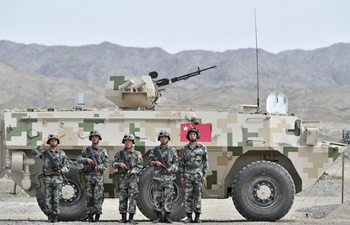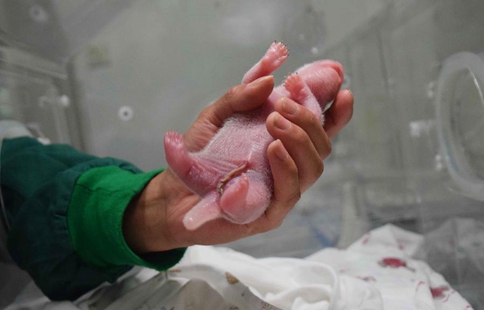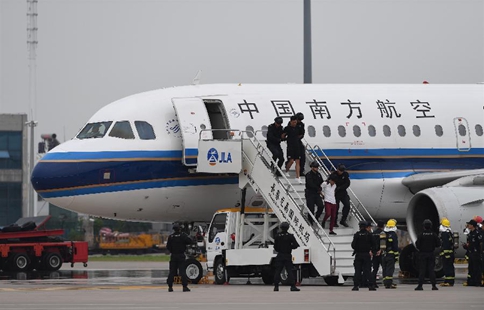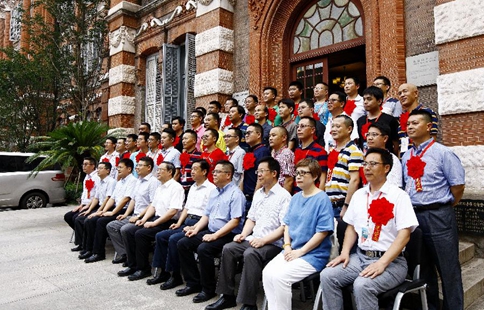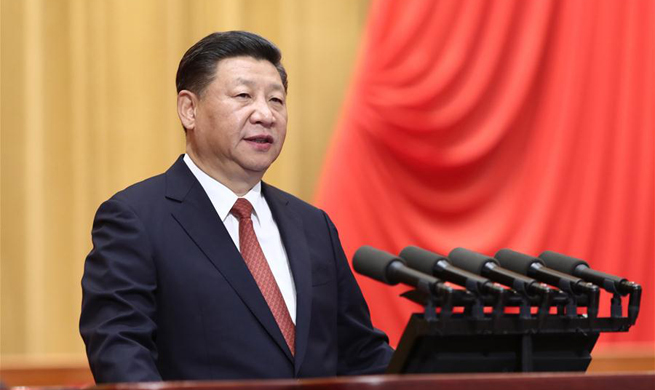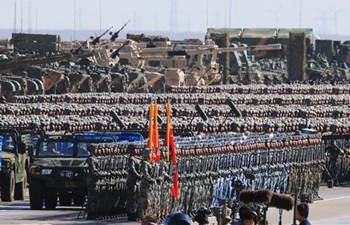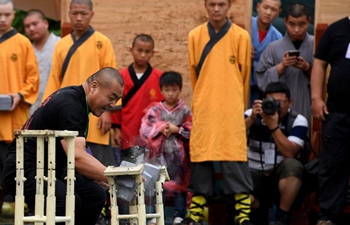GUANGZHOU, Aug. 2 (Xinhua) -- Unlike college graduates who swarm into office buildings as white collar workers, Yang Jitian is a blue collar worker in Dongguan, southern China's Guangdong Province.
After graduating in July, he was trained as an electrical machine operator at a numerical control production line at a mold manufacturing company called Ensheng.
"University graduates were rare at assembly lines of plants in the past, but the situation is changing. Most of our classmates have now become blue collar," Yang says.
MACHINE FOR MAN
Known as the world's factory, Dongguan is a leading production base for garments and gadgets. One-fifth of the world's smartphones are produced there, so are one-tenth of the world's shoes.
Since China's opening and reform in the late 1970s, the city has attracted China's abundant low-end labor force to work on factory assembly lines.
However, the economic slowdown and growing labor costs have forced the city to seek transformation by introducing robots and machine operators.
Yang works in a workshop twice the size of a basketball court, at a constant temperature of 24 degrees Celsius.
The machines they operate are worth more than 1.5 million yuan (223,000 U.S. dollars) on average. Without dust and noise, all Yang needs to do is to type complicated codes correctly and monitor the running status of the machine.
This year, Ensheng company recruited seven college graduates from an international cooperation class at Dongguan Technician College, including Yang.
General manager Wu Bin says the limited competence of farmer-turned workers has greatly affected the company's development in fine manufacturing and processing.
"A worker broke a cutting head worth 400,000 yuan on the first day he joined the company," Wu says, adding that he plans to recruit more college graduates next year.
Figures show the minimum wage jumped from 690 yuan in 2006 to 1,510 yuan in 2015, with labor cost doubled or even tripled in some companies.
In September 2014, pressured by a persistent labor crunch and surging wage bills, Dongguan started its push towards automation, providing subsidies for manufacturing "machine for man" programs.
By January, nearly 2,700 projects under the program had received government funding support, introducing 76,000 machines. The machines have increased productivity 2.5-fold, freeing 200,000 line workers.
COLLEGE SUPPORT
In college, Yang learned skills ranging from making standardized records to machine operations.
"It seems a nice way out, to be a trained blue collar worker, since the manufacturing industry in Dongguan is in transition," he says.
To attract university students who prefer better office jobs, the Chinese government has offered subsidies for student tuition and funds for vocational colleges.
By 2016, the number of vocational colleges, which are aimed at educating high-end technical personnel, reached nearly 1,400, accounting for 52.3 percent of China's universities.
Si Qi, director at the human resources bureau of Dongguan, says graduates from the China-German class in Dongguan Technician College mostly stay in Dongguan, with an average monthly wage over 6,000 yuan.
The headmaster of Dongguan Technician College, Liu Haiguang says the college is trying to train all-round skilled technicians for the high-end manufacturing industry.
"With machines, technical talent will compose of new types of workshop, which will help with upgrade 'made-in-China'," he says.




